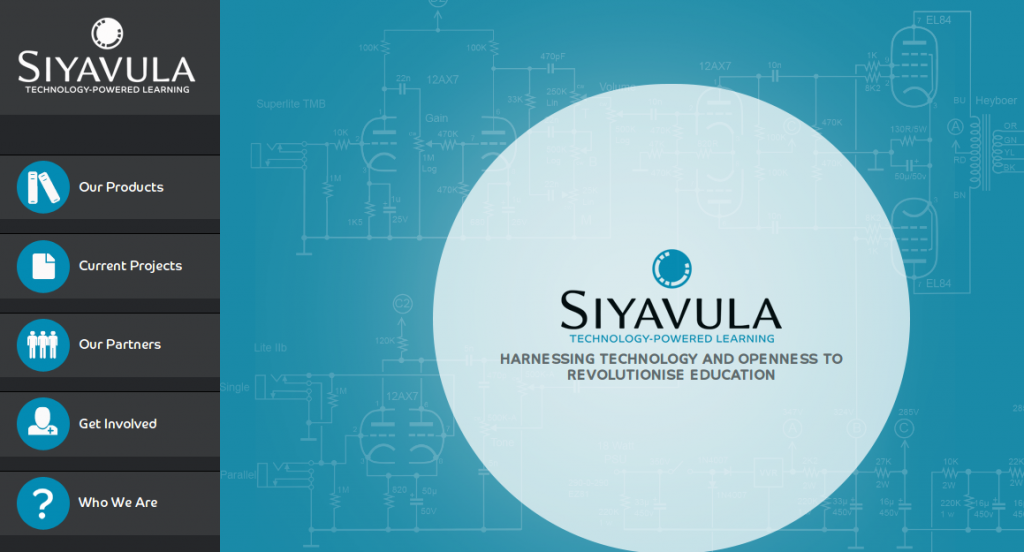 Siyavula
Siyavula
If you’ve heard of Siyavula at all, you’ll probably know them as the open source textbook guys that got some money from the Shuttleworth Foundation a few years back to create CAPS-aligned Creative Commons licensed textbooks that schools can download for free that have been customised for almost any device from a feature phone up.
And if that’s all that Siyavula did, it would be a great organisation. But behind the hippyish first appearance there’s a team of great calibre and long-term vision that could well make Siyavula a force to be reckoned with internationally before long.
“We feel the raw content of school textbooks is basically a commodity, it’s been written down a thousand times,” says Siyavula’s Mark Horner, “Things like Newton’s law and the definition of a parabola – we don’t feel that anyone is adding value by rewriting, repackaging and recharging for that content. You have Wikipedia for that.”
Siyavula’s new focus is on its assessment engine, the “adaptive practice solution” as Horner puts it. Essentially, this is a way of automating homework using big data. The core database is full of practice questions, which are randomised and tailored to a pupil’s particular level of understanding, then fired out to a tablet, phone or feature phone for completion.
“We had to work out how to allow people on a feature phone to type in things like “spectroscopic analysis”, chemical equations and so on,” says Horner, “We don’t just do multiple choice. When the learner is practising they see a sequence of exercises that is tailored to their level of ability through a machine learning process.”
If the software picks up that a pupil is struggling, it takes the difficulty down a lot, and for classroom over-achievers it’ll get progressively more challenging. Every day, the device connects to the Siyavula servers to download new questions and share data for improving the adaptive algorithm.
“We look at what you’re getting right and what you’re getting wrong and correlate with results from earlier grades,” says Horner, “So if every time you see a question on fractions and get it wrong there’s a good chance the kid struggles with that. We can point them back to previous years to practice and come back.”
Horner says that around 50 schools are currently using the engine, and that it’s aimed at encouraging children to engage in ‘self learning’ as well as reducing the amount of time teachers spend on homework. The concept of self learning is popular internationally at the moment, as internet access provides children with more information than teachers can hope to teach by themselves. It has longstanding traditions, though, in educational practices like the Montessori method.
Siyavula’s books are already used by all of the platform providers, and Horner is hoping to be able to integrate the adaptive learning engine too. For the time being only maths and the sciences are supported, but Horner says that once they have covered those subjects for all secondary learners – a task he aims to have finished by the end of next year – he’ll extend the system to humanities subjects too.

